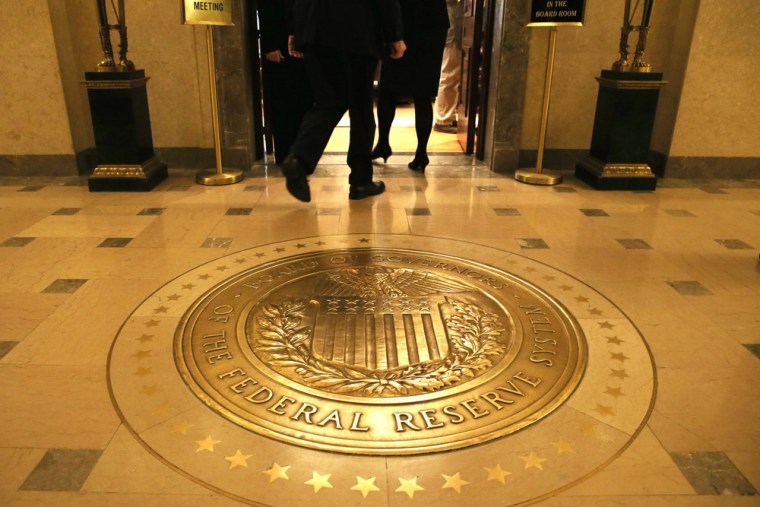There will be no immediate easing of the easing.
In a dramatic shift, the CNBC October Fed Survey finds Wall Street expecting the Federal Reserve to maintain its $85 billion level of monthly asset purchases until April 2014. That's five months ahead of the average in the last survey.
What's more, the 40 respondents—economists, strategists and money managers—see the Fed buying about $650 billion of assets next year, up from $381 billion in the September survey.
The current program, known as quantitative easing, in which the Fed buys government bonds and mortgages in an effort to stimulate the economy by driving down interest rates, is expected to last until December 2014. Respondents to the previous survey had thought the Fed would end its purchases by August.
"Unfortunately, the U.S. economy in 2014 will look similar to 2013,'' Chad Morglander with Stifel Nicolaus wrote in response to the survey. "This will force the Federal Reserve to continue QE longer than consensus expectations."
Morglander looks for the Fed to taper in April but continue buying assets until March 2015. He's not alone: Forty percent of respondents envision the Fed continuing to purchase assets into 2015.
The change follows the Fed's surprise decision at its September meeting not to taper amid high interest rates, weak economic growth and concern of a government shutdown. It appeared to be the right move.
On average, respondents estimate the fiscal debate shaved 0.3 percent off fourth-quarter growth but see little impact beyond that. About 53 percent of the negative impact was viewed as the result of uncertainty and 44 percent from a decline in government spending.
"Federal government actions have ONLY added to slowing," wrote David Kotok of Cumberland Advisors. "Congress and the White House have only made things worse than they would otherwise be."
On the bright side, 67 percent believe the next fiscal debate will be "less contentious" than the last one.
Respondents see the economy posting just 1.9 percent growth this year, down from an optimistic 2.7 percent at the beginning of 2013. They continue to hold out hope of a rebound next year, forecasting 2.5 percent growth year-over-year.
Wall Street forecasts an 18.4 percent chance of a recession in the next year. That's the third consecutive rise for the survey, up from the June low of 15.2 percent but below the long-run average of 22 percent.
Meanwhile, the financial industry is divided over the holiday shopping season: About a third say it will be worse than last year, while a third say it will be better and a third say it will be the same.
"The shorter holiday shopping season will not prevent a rise in holiday sales of 3 to 3.5 percent from last year,'' said Stuart Hoffman of PNC. "Two million more employed, high house and stock prices, and lower gasoline prices drive holiday sales higher."
—By CNBC's Steve Liesman. Follow him on Twitter: @steveliesman
